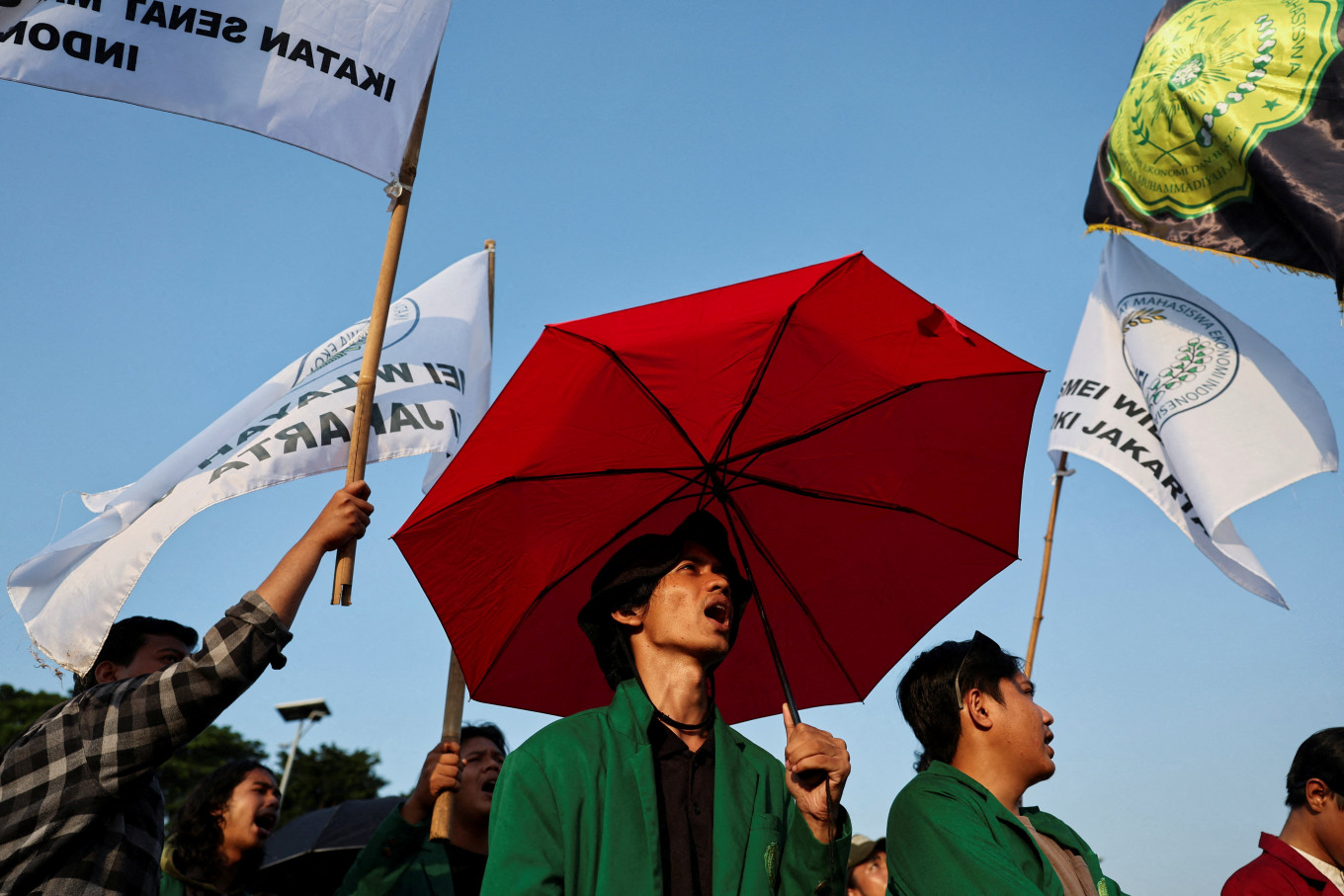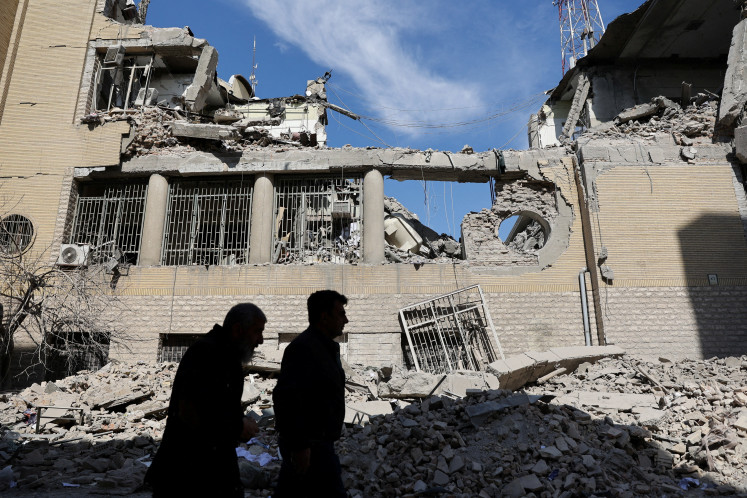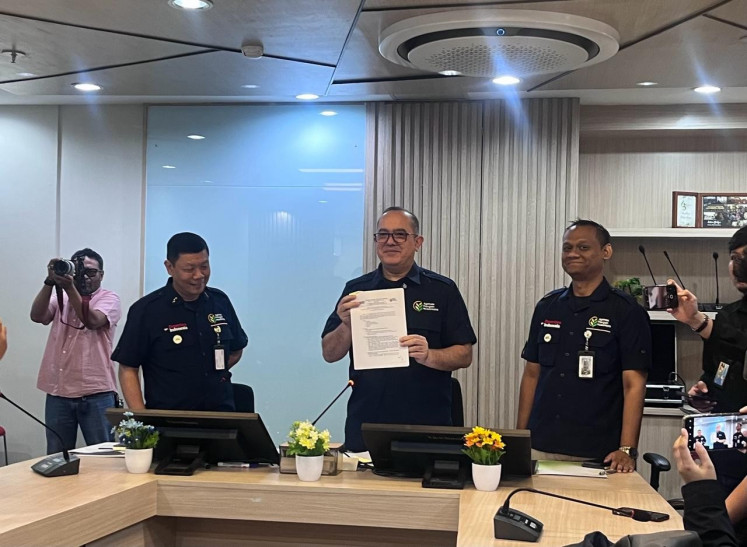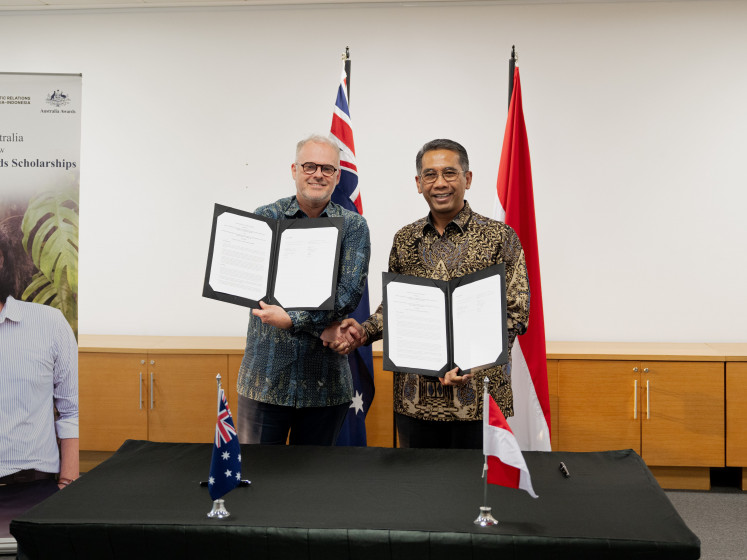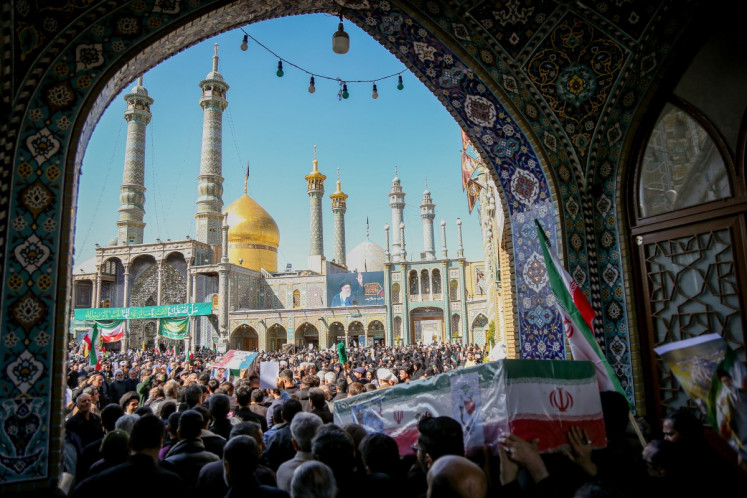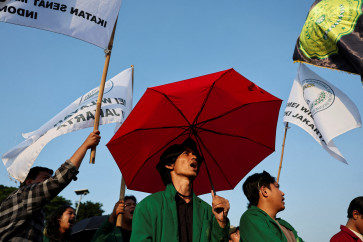Popular Reads
Top Results
Can't find what you're looking for?
View all search resultsPopular Reads
Top Results
Can't find what you're looking for?
View all search resultsIndonesian students abroad, riots at home, and the real meaning of merit
Wasteful perks for officials, riot police suppressing citizens, and education budget cuts are not only failures of policy, they are failures of privilege, of leadership and of moral clarity.
Change text size
Gift Premium Articles
to Anyone
I
f you are reading this from the comfort of a Herman Miller chair, scrolling through the latest news on your second iPhone, swapping stories with fellow international students thousands of miles from Indonesia, this reflection is for you.
In recent days, Indonesians have taken to the streets in unprecedented protests as news broke that members of the House of Representatives were receiving monthly housing allowances nearing Rp 50 million (US$3,050), close to 10 times Jakarta’s minimum wage, while vital public services are squeezed. Riot police, tear gas, burned government and legislative buildings: these are the images filling social media feeds and fueling anxiety, anger and, especially for those far from home, a cocktail of guilt, gratitude and unease.
The unease of privilege is hard to name but easy to feel. For the lucky, recipients of government scholarships, children whose families can afford tuition or connections, the contrast between daily security abroad and instability back home is wrenching. There is relief for a life of comfort, but also a sense of indebtedness: A debt to family, to government sponsors and to the millions whose sacrifices and tax money make these opportunities possible. Many wrestle with gratitude mixed with guilt, privilege mixed with fear. To be allowed to reflect on this conflict, while experiencing comfort, is itself a luxury not everyone enjoys.
With this privilege comes real responsibility. It is easy, abroad, to limit one’s activism to sharing posts, circulating stories or voicing concern in safe spaces. But deep down, the same intelligence that brought you overseas is the same intelligence that insists comfort should not be an excuse for complacency.
Privilege cannot be justification for silence. It must be a platform for brave, engaged action.
Indonesia’s turmoil reflects a deeper, global tension: The struggle between inherited privilege (“nepo babies,” political dynasties, celebrity lawmakers) and genuine merit. Data show 70 percent of local leaders come from political families, and a worrying number of lawmakers are entertainers and influencers whose celebrity, not competence, wins votes.
The recent riots are more than just anger at unfair allowances, they are a protest against a system perceived to value popularity and lineage over expertise, experience and accountability.

